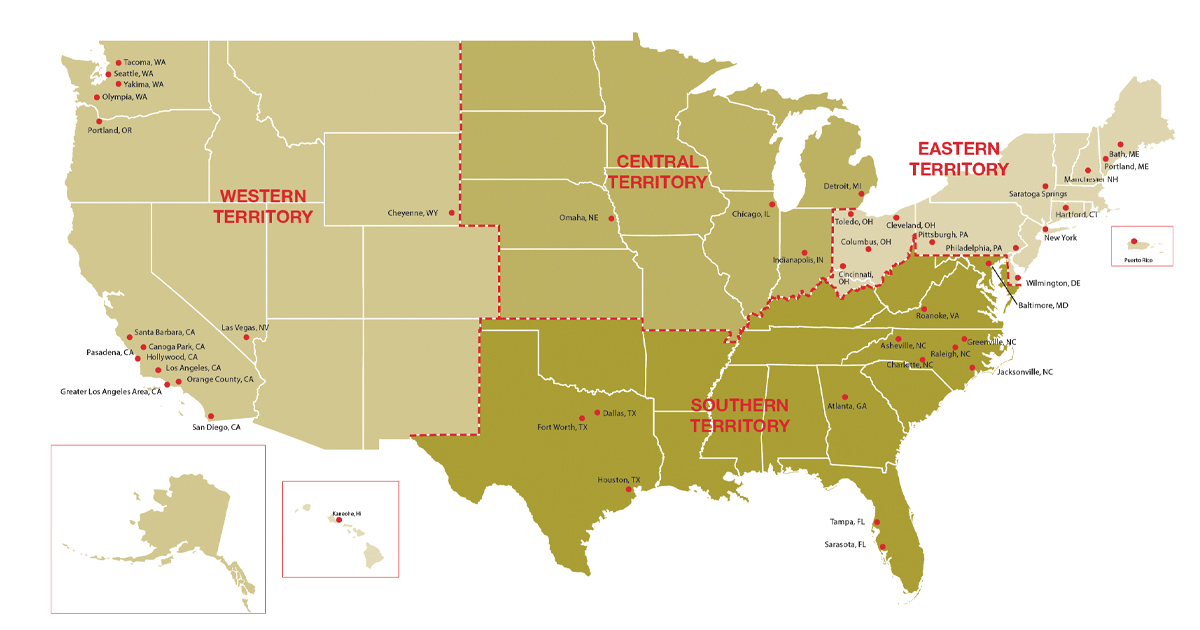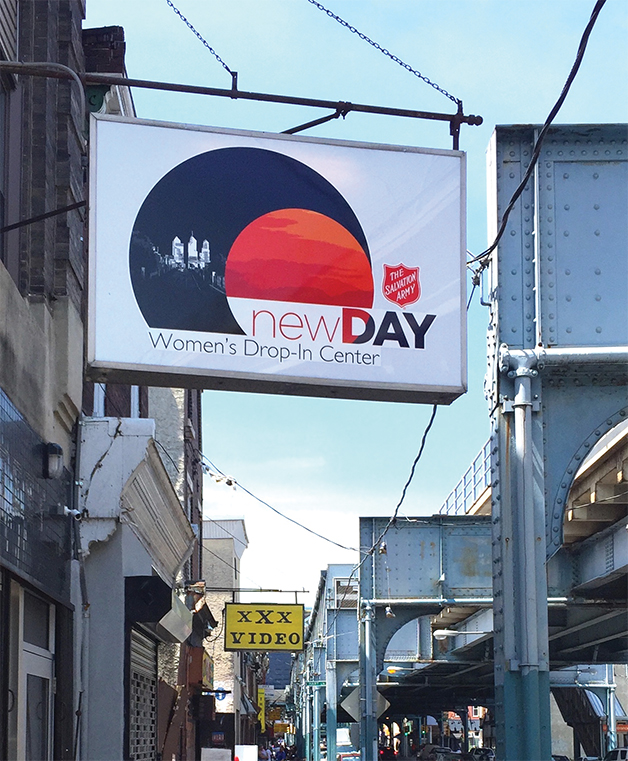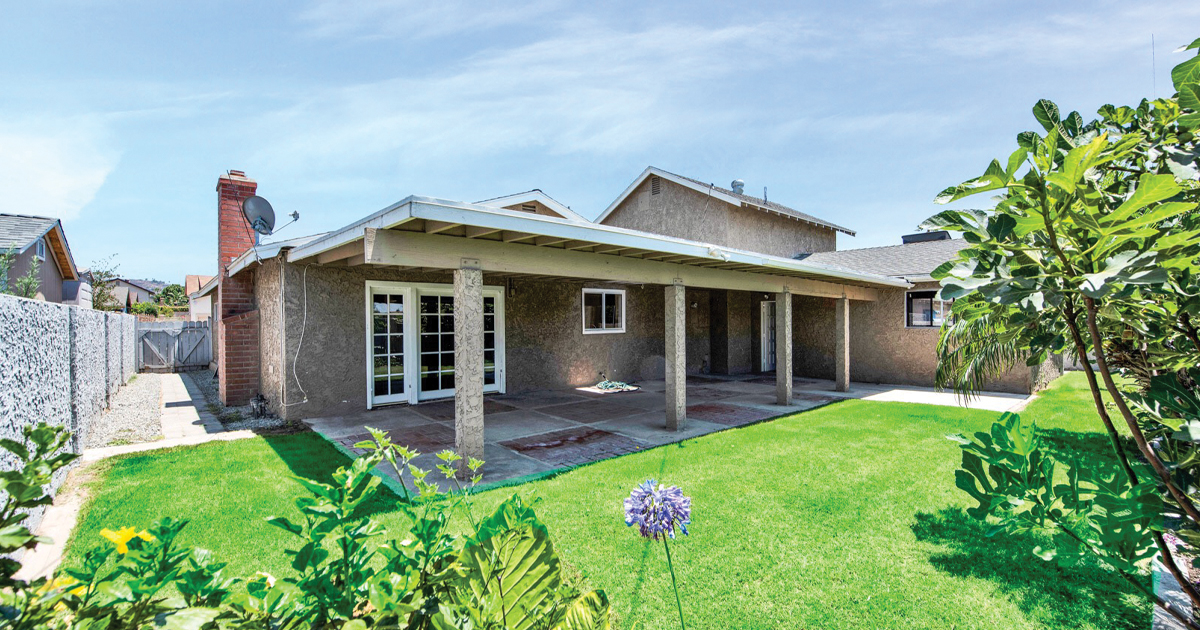The Fight Against Human Trafficking
For nearly its entire existence, The Salvation Army has been a world leader in the anti-human trafficking problem. It is estimated that there are over 40 million people enslaved in the world today.
For nearly its entire existence, The Salvation Army has been a world leader in the anti-human trafficking problem. It is estimated that there are over 40 million people enslaved in the world today. In the United States, over 23,000 survivors were assisted in 2018, but there are still over 50,000 people estimated to be trafficked in the United States alone. There are currently 46 Salvation Army centers of operation across the US, with 157 staff members that are dedicated to helping those in need. Staff are continuously trained to combat the ever-changing face of human trafficking across the country. In 2019, over 4,000 individual survivors were assisted with over 24,000 nights of shelter. While 79% of the survivors are female, there is a growing number of male survivors, especially among the LGBTQ community.
The Army is not alone in dealing with this issue with 746 local partnerships and 99 task forces and coalitions across the country. The following accounts are indicative of the Army’s anti-trafficking initiatives around the country.
The Road to Empowerment at New Day
One cold night, around 11 p.m., back in the fall of 2012, I was sitting in a tiny kitchen in Kensington, PA. I heard a bang on the double doors at the front of the center, then another one and then a series of bangs getting faster. I jumped up quickly to see who it was. It was a client of ours, who had been a regular for a few months. She was a middle aged, Native American woman who would come in late at night for clothing, some food or to use the restroom. She was frantic, and I could tell that something was wrong. As I walked with her to the back room, which was a bit more private, she blurted out, “I wanted to kill myself. I wanted to kill myself because I just can’t take it anymore. I was going to jump in front of the train at the Huntington stop. I felt like if I died tonight, no one would notice or even care. But then I remembered you all, I know you care. I ran as fast as I could until I got here, and as I was running here a date tried to pick me up. I kept running and he kept shouting my name.” She said all of that in one breath, as if her body were purging it.
Thatiana’s Home offers comprehensive case management for trafficking survivors. The four-bedroom fully equipped home provides a safe environment in a long-term residential setting as survivors move through healing and work toward freedom and independence.
Exchanges like this are all too familiar at New Day. As a social worker, you’re constantly getting “word vomited on,” experiencing polarizing emotions of pain and heartache for what the clients have experienced. You experience the trauma vicariously, while also feeling grateful to be a small part of this work and to have a center that is seen as a beacon of hope—which used to be the center’s name before it became the New Day to Stop Trafficking Program (NDSTP). I don’t share this experience to highlight our efforts, but to emphasize the need for anti-trafficking programs and for the power available in extending Christ’s love to those most in need.
Since the creation of the New Day Program in 2010, we have continued to work toward meeting the needs of survivors of human trafficking. We always work to empower survivors and to be the hands and feet of Jesus. Since its inception, NDSTP has grown like wildfire. We started with a part-time drop-in center, which quickly grew to a full-time center with intensive case management, therapeutic art, trauma and spiritual freedom groups. Eventually, that evolved to the point where New Day received a series of federal grants to expand our services across all of Philadelphia and some surrounding counties. These grants helped us to create and lead the Philadelphia Anti-Trafficking Task Force with local and federal law enforcement. Next came the creation of a transitional housing program for survivors of labor and sex trafficking and a police-assisted diversionary program focusing on the intersection of the opiate crisis and human trafficking. Police-Assisted Diversion (PAD) works to divert people away from the criminal justice system and towards supportive, peer-based social services that are customized to the participants’ needs, in collaboration with service providers, and community residents, and takes a health-centered approach to law enforcement. This last decade of The Salvation Army’s New Day Program have been beautiful years of growth and restoration.
WHAT SUCCESS LOOKS LIKE
One of the most common questions I get asked is, “How successful is your program?”

In a social and business environment that puts a priority on what can be produced, return on investment and sensational outcomes, this question is not surprising and to be expected. The question I often ask in return is, “What does success mean to you?” While we at New Day value getting a woman away from her trafficking or assist her in accomplishing her long-term goals, we also value the individual and what are often seen as “small successes” or “baby steps.” We see success as the same woman coming back through our drop-in center multiple times.
Let’s face it, entering into an unfamiliar space with strangers takes courage, and so much more courage when in your world you’ve been continually taken advantage of by strangers. Having a resident stay in our housing program for a full year without running away when the system has labeled them “an AWOL risk”—that’s success. And when a client of ours decides not to end her life because we have shown her love, dignity and value, that is a powerful, life-changing success. In working with victims of a crime that at its core takes away control and choice, we seek to empower and view the survivors as the experts in their own journey. I encourage all our staff and clients to celebrate the baby steps, the trust and rapport that’s been built, because those are the building blocks to long-term change.
Though this work is beautiful and rewarding, it is incredibly heavy weighing on the soul. This movement requires advocates, allies, leaders, social workers and systems committed to this fight not because it’s trending in the news or buzzing around social media, but because this issue permeates every community in our country and world and God’s heart is broken for His people. Doing this work requires a certain heart posture that balances righteous anger about injustice, hope and a judgment-free attitude with a passion for “doing the most good.” It requires checking our own biases and expectations because it’s often a thankless job. When we remember for who and why we are doing this work, it lifts our hearts and grants the perspective of doing our part to confront injustice as a whole.
I have personally been doing this work for a decade, and it’s been in the moments least expected that I’ve experienced Christ the most. I’m reminded that this is where Christ would have spent His time, with those unseen, unheard and pushed to the outskirts of society. And because I believe in this hope, we press on.
Anti-trafficking staff members in each U.S. Territory are involved in the Fight For Freedom Action Plan through awareness and training, prevention and outreach, survivor and recovery services and partnerships and advocacy. Each territory is represented in the North American Anti-Trafficking Committee to advance the Army’s initiatives. Partnerships and training includes law enforcement, social services, healthcare providers, businesses, faith-based communities and educational institutions.
by Arielle Curry, director of Anti-Trafficking for the Eastern Territory

First Safety, Then Healing
In 2003, The Salvation Army formalized its commitment to work on anti-trafficking initiatives worldwide. A proven leader in the faith-based community, the Army raises awareness on human trafficking, advocates for legislation, provides direct services to survivors and develops protocols to meet their needs. The Army in Orange County, CA made the same commitment by creating the capacity to serve victims as part of the core leadership team of the Orange County Human Trafficking Task Force (OCHTTF).
The Army’s Anti-Trafficking Services (ATS) program was funded to ensure that comprehensive case management is available to victims of human trafficking identified in and/or living in Orange County. Since its creation in 2004, OCHTTF partners have served over 500 victims and have experienced an increase in the number of trafficking victims referred for case management, primarily due to law enforcement’s efforts to investigate suspected trafficking situations and increased identification of potential victims in the community. In 2019 alone, the Army’s program served 55 victims of human trafficking, as well as 67 of their family members from 17 countries. Of those served, 22 were victims of sex trafficking and 33 were victims of labor trafficking.
The effort to locate, rescue and restore victims of labor and sex trafficking, foreign and domestic, adults and minors, is a highly collaborative effort in the OCHTTF. The main function of the Army’s program is to ensure comprehensive case management and coordination is provided to victims of human trafficking identified in Orange County through:
- Case management–providing timely, high-quality, comprehensive services to foreign-born victims of human trafficking, including a housing program where victims live in a safe, healthy environment.
- Training/capacity building–enhancing the ability of the victim services community, first responders and key stake holders to better understand the dynamics of human trafficking and to more effectively identify and serve victims.
- Core leadership team–contributing to the inter-agency collaboration including a coordinated 24 hour emergency response.

SAFE HOMES
Anti-trafficking services include operating human trafficking specific safe homes in Orange County. The Guest House provides safe shelter for foreign national survivors while they heal from the trauma of their trafficking experience. Under this long-term housing service, survivors apply for trafficking-specific immigration relief so they can gain independence and integrate into American society once immigration is granted. In 2016, the Guest House was expanded from one home to three, with a capacity of 12 beds for survivors. The Army can now provide safe housing to both male and female survivors of human trafficking.
In 2019, ATS launched Thatiana’s Home, the first emergency safe home for domestic born victims of sex trafficking. It’s named after a survivor of human trafficking who came to the Army in need of resources four years ago. Thatiana’s Home provides a safe place for victims to rest and begin to address their trauma while they look toward a new life. This low barrier shelter provides direct services to survivors through a holistic, strength-based, trauma and survivor informed approach. Thatiana’s Home is a four bedroom residence that can serve nine women for up to a six-month stay. Young women ages 18 to 25 receive comprehensive case management and support. In addition to having their basic needs met, these young women are assisted with obtaining next step housing, participate in work development and employment programs, are trained in life skills and have access to mental health services. The ATS team has the privilege of seeing each survivor go through stages of healing as they move from escape from their traffickers to graduating from the program and living a life of freedom and choice.

One survivor who entered the program two years ago had been trapped by a family for 11 years before she decided to escape, not knowing if she would survive. Bound by debt to this family, they used her as a domestic servant. She was not allowed to leave her trafficker’s home. She did not know of any resources to assist her until she reached out to the National Human Trafficking Hotline and was connected to ATS. One morning, she escaped her traffickers, agreeing to meet her ATS case manager at a safe location. She was taken to the Guest House where she currently resides. This survivor has not seen her daughter in 15 years because of her traffickers. As a part of ATS services, staff worked with this survivor to apply for immigration relief as a legally identified victim of human trafficking in the United States. She was awarded immigration relief in the form of a Trafficking Visa in May. She is now enrolled in a vocational program to gain language skills so she can work as a Licensed Vocational Nurse. ATS will begin the reunification process in order for her daughter to come to the United States, in partnership with the International Organization for Migration (IOM). This survivor can officially start a new life as she continues healing from the exploitation she has experienced.
Each survivor’s journey strengthens us in our resolve to have God heal His children.
Catherine’s Cottage is a 24 hour, 365-days a year emergency housing facility in a confidential area in Baltimore city. The Central Territory’s STOP-IT Initiative against Human Trafficking consists of a comprehensive network of facilities and providers involved in rescue, education and outreach.
by Stephanie Taylor, program coordinator for the Army’s Anti-Trafficking Services for the Western Territory







